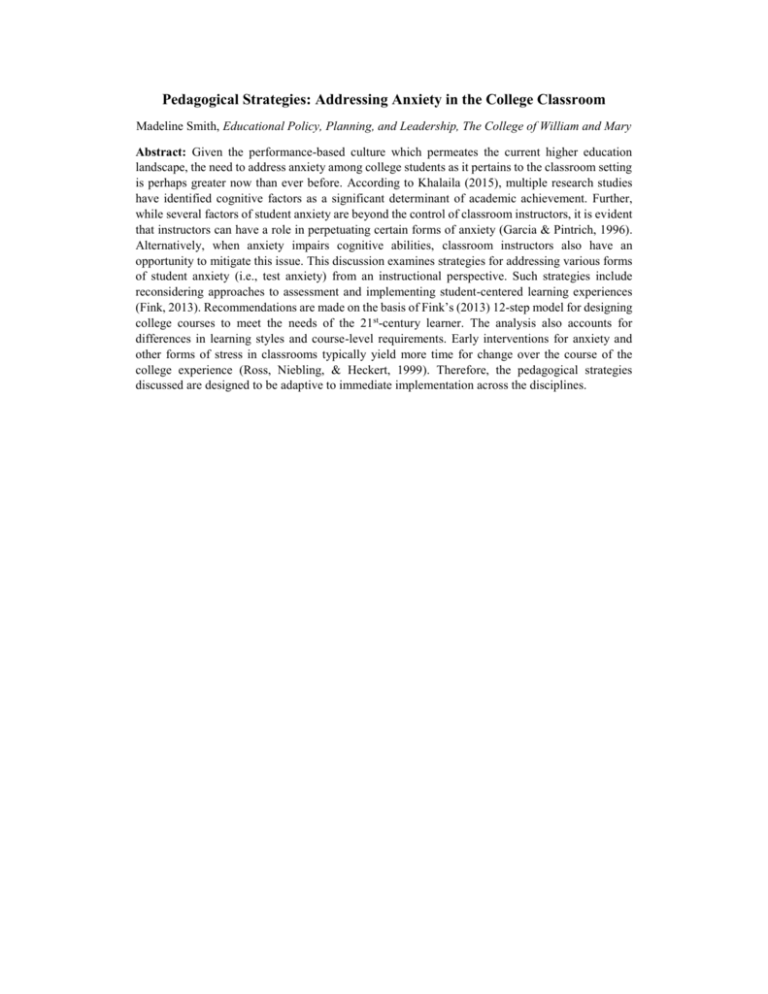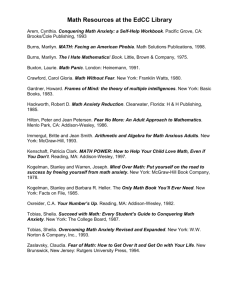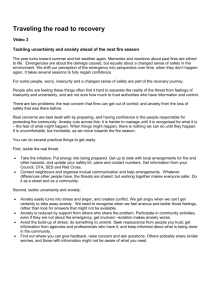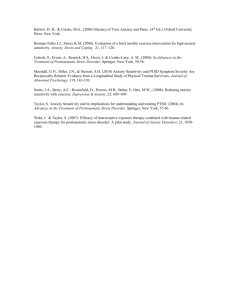2-page proposal file
advertisement

Pedagogical Strategies: Addressing Anxiety in the College Classroom Madeline Smith, Educational Policy, Planning, and Leadership, The College of William and Mary Abstract: Given the performance-based culture which permeates the current higher education landscape, the need to address anxiety among college students as it pertains to the classroom setting is perhaps greater now than ever before. According to Khalaila (2015), multiple research studies have identified cognitive factors as a significant determinant of academic achievement. Further, while several factors of student anxiety are beyond the control of classroom instructors, it is evident that instructors can have a role in perpetuating certain forms of anxiety (Garcia & Pintrich, 1996). Alternatively, when anxiety impairs cognitive abilities, classroom instructors also have an opportunity to mitigate this issue. This discussion examines strategies for addressing various forms of student anxiety (i.e., test anxiety) from an instructional perspective. Such strategies include reconsidering approaches to assessment and implementing student-centered learning experiences (Fink, 2013). Recommendations are made on the basis of Fink’s (2013) 12-step model for designing college courses to meet the needs of the 21st-century learner. The analysis also accounts for differences in learning styles and course-level requirements. Early interventions for anxiety and other forms of stress in classrooms typically yield more time for change over the course of the college experience (Ross, Niebling, & Heckert, 1999). Therefore, the pedagogical strategies discussed are designed to be adaptive to immediate implementation across the disciplines. References Fink, L.D. (2013). Creating significant learning experiences: An integrated approach to designing college courses. San Francisco, CA: Jossey-Bass. Garcia, T., Pintrich, P.R. (1996). The effects of autonomy on motivation and performance in the college classroom. Contemporary Educational Psychology, 21(4), 477-486. Khalaila, R. (2015). The relationship between academic self-concept, intrinsic motivation, test anxiety, and academic achievement among nursing students: Mediating and moderating effects. Nurse Education Today, 35(3), 432-438. Ross, S.E., Niebling, B.C., Heckert, T.M. (1999). Sources of stress among college students. College Student Journal, 33(2), 312-317.






